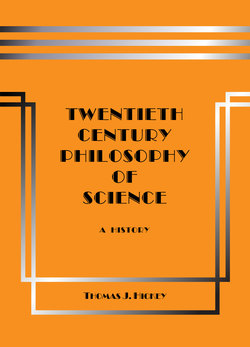Читать книгу Twentieth-Century Philosophy of Science: A History (Third Edition) - Thomas J. Hickey - Страница 72
На сайте Литреса книга снята с продажи.
D. PRAGMATICS 3.41 Pragmatic Dimension
ОглавлениеPragmatics is the functions of language.
Linguists recognize the pragmatics of ordinary English when they distinguish the four moods, namely the declarative, interrogative, imperative and exclamatory moods. The intended mood can be indicated syntactically by word order and/or punctuation marks, and phonetically by voice inflection. The moods can be exemplified in the language of science, but philosophers of science make pragmatic distinctions that are more specifically functional for basic research in empirical science:
The pragmatics of basic research in science is theory construction and empirical testing, in order to produce laws for explanations.
Pragmatics is the metalinguistic dimension after syntax, semantics and ontology, and it presupposes all of them. The regulating pragmatics of basic science is set forth in the statement of the aim of science, namely to create explanations containing scientific laws by development and empirical testing of theories, which are deemed laws when not falsified by the currently most critically empirical test. Explanations and laws are accomplished science, while theories and testing are work in progress at the frontier of basic research. Understanding the pragmatics of science requires understanding theory development and testing.
